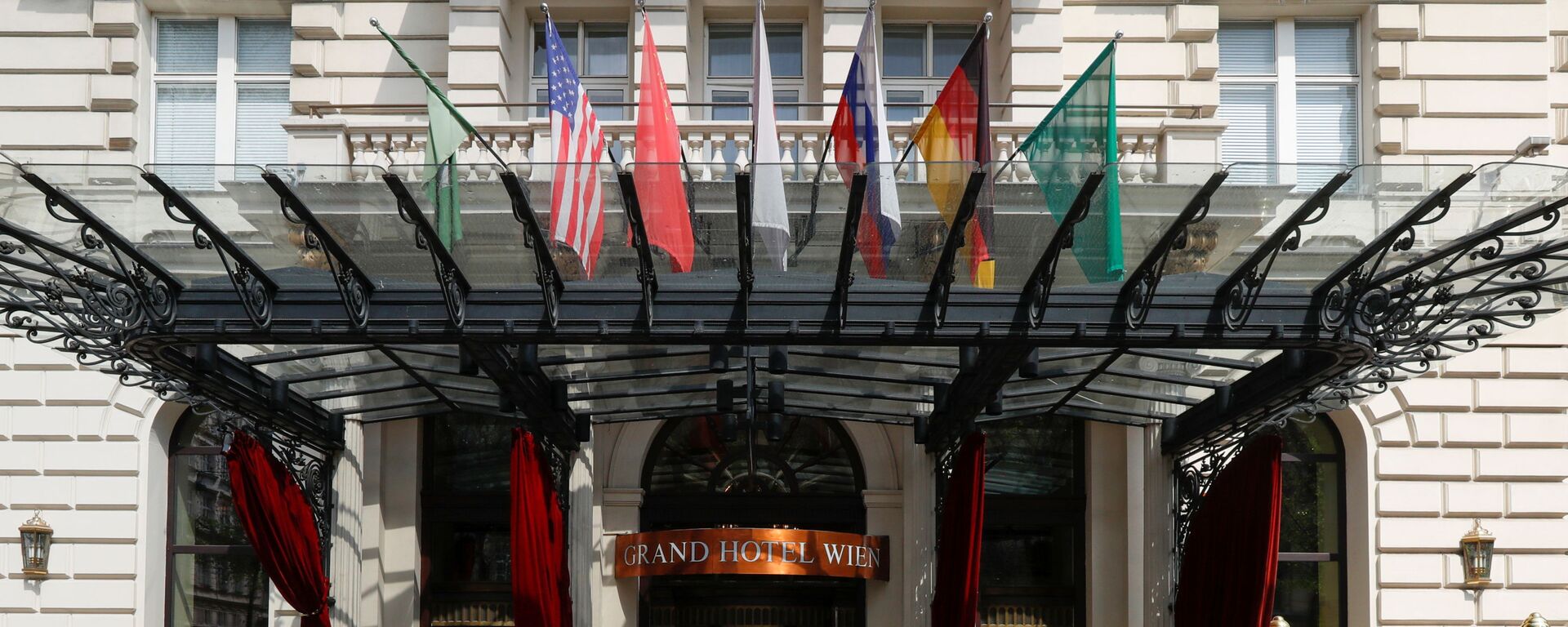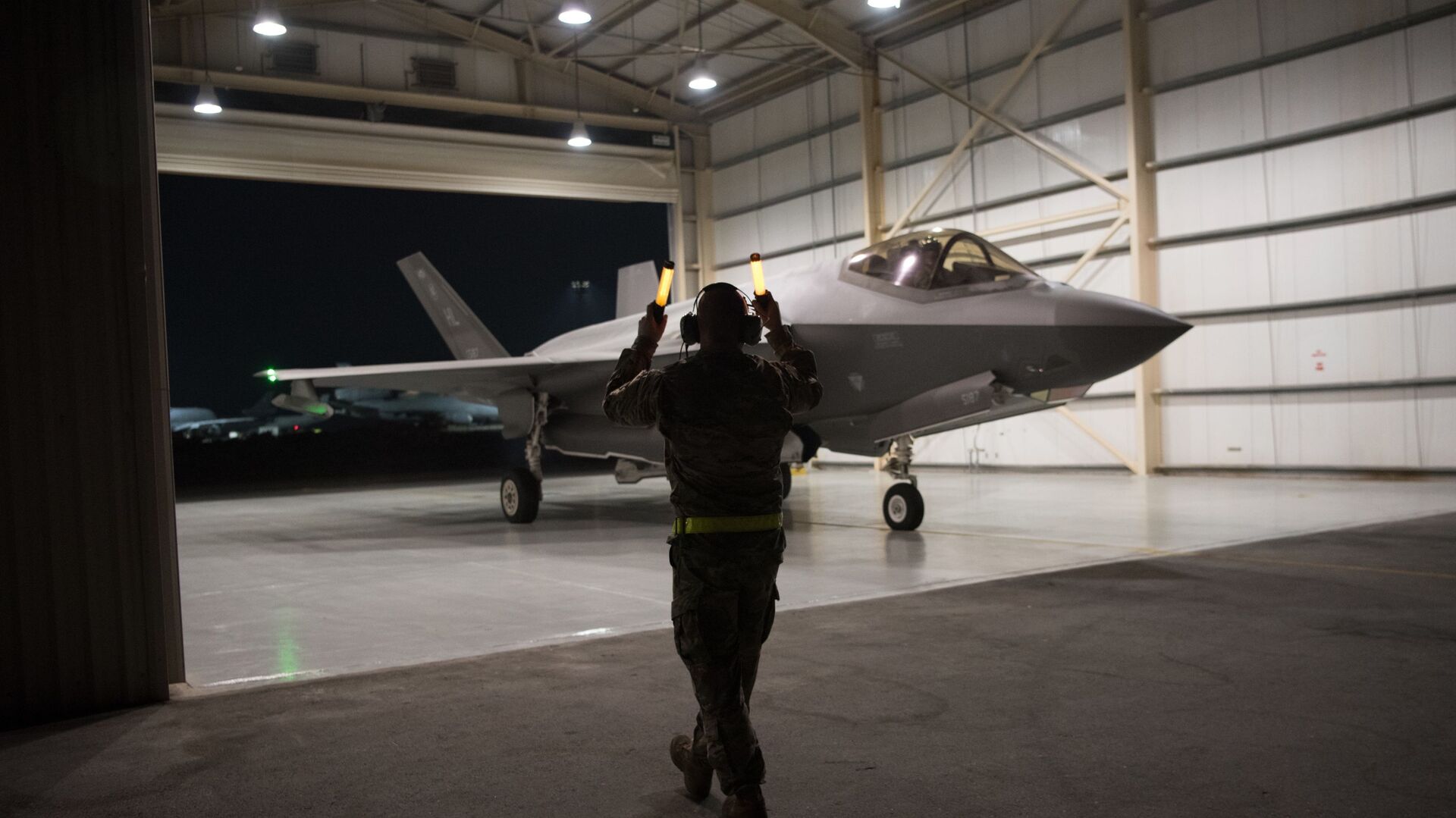https://sputnikglobe.com/20211105/israel-can-strike-iran-but-the-difficult-part-comes-after-ex-idf-intelligence-chief-says--1090508919.html
Israel Can Strike Iran, But the Difficult Part Comes After, Ex-IDF Intelligence Chief Says
Israel Can Strike Iran, But the Difficult Part Comes After, Ex-IDF Intelligence Chief Says
Sputnik International
Tel Aviv has repeatedly raised concerns over the Iranian nuclear programme, which it claims is aimed at acquiring nuclear weapons – something that Tehran... 05.11.2021, Sputnik International
2021-11-05T18:39+0000
2021-11-05T18:39+0000
2021-11-05T18:39+0000
middle east
israel
iran
https://cdn1.img.sputnikglobe.com/img/07e5/03/05/1082267576_0:161:3067:1886_1920x0_80_0_0_73a463cae91153a771855a884db183ce.jpg
Depending on how future negotiations currently being mulled on Iran's return to the nuclear accord go, Tel Aviv might face the tough choice of whether or not it should take action against the Islamic Republic, ex-chief of the IDF Military Intelligence Directorate, Amos Yadlin, said in an interview with 103FM radio.He stressed that the Israeli military has capabilities to strike Iran in order to cripple its nuclear programme, but noted that the toughest challenge is not hitting Tehran, but what comes after.Yadlin did not elaborate on what specific challenges Israel will face in the aftermath of the attack, but Tehran has repeatedly warned Tel Aviv that any "mistake" on its part would cost the country dearly.The IDF's former spy chief noted that a US failure to reach an agreement with Iran for both of them to return to compliance with the Joint Comprehensive Plan of Action (JCPOA, also known as the Iran nuclear deal) would force Israel's Prime Minister Naftali Bennett to face a choice regarding what he should do about Tehran and its nuclear programme.Iran has been gradually rolling back its commitments under the JCPOA since May 2019, in response to the US exit from the accord in 2018 and the introduction of sanctions by the Trump administration. Tehran has since ramped up its uranium enrichment closer to military-grade levels, while insisting that it does not seek to create nukes and only wants the US to lift the sanctions and return to JCPOA compliance.Despite the change of administrations, Washington is in no rush to return to the deal. It took part in talks in Vienna this May, but failed to reach a common ground with Tehran, which demands that the sanctions be lifted in order to negotiate its return to compliance. Recently, both countries announced their willingness to return to the negotiating table, with Iran setting 29 November as the date of the start of the new round of talks.
https://sputnikglobe.com/20211103/iran-to-resume-jcpoa-negotiations-in-vienna-on-nov-29---iranian-deputy-fm-1090456972.html
israel
iran
Sputnik International
feedback@sputniknews.com
+74956456601
MIA „Rossiya Segodnya“
2021
Tim Korso
https://cdn1.img.sputnikglobe.com/img/07e6/03/0d/1093831826_0:0:216:216_100x100_80_0_0_e3f43a960af0c6c99f7eb8ccbf5f812c.jpg
Tim Korso
https://cdn1.img.sputnikglobe.com/img/07e6/03/0d/1093831826_0:0:216:216_100x100_80_0_0_e3f43a960af0c6c99f7eb8ccbf5f812c.jpg
News
en_EN
Sputnik International
feedback@sputniknews.com
+74956456601
MIA „Rossiya Segodnya“
Sputnik International
feedback@sputniknews.com
+74956456601
MIA „Rossiya Segodnya“
Tim Korso
https://cdn1.img.sputnikglobe.com/img/07e6/03/0d/1093831826_0:0:216:216_100x100_80_0_0_e3f43a960af0c6c99f7eb8ccbf5f812c.jpg
middle east, israel, iran
middle east, israel, iran
Israel Can Strike Iran, But the Difficult Part Comes After, Ex-IDF Intelligence Chief Says
Tel Aviv has repeatedly raised concerns over the Iranian nuclear programme, which it claims is aimed at acquiring nuclear weapons – something that Tehran strongly denies. Israel has said that it won't allow this to happen and will take the necessary steps to ensure it, without elaborating on the matter.
Depending on how future negotiations currently being mulled on
Iran's return to the nuclear accord go, Tel Aviv might face the tough choice of whether or not it should take action against the Islamic Republic, ex-chief of the IDF Military Intelligence Directorate, Amos Yadlin, said in an interview with 103FM radio.
He stressed that the Israeli military has capabilities to strike Iran in order to cripple its nuclear programme, but noted that the toughest challenge is not hitting Tehran, but what comes after.
"Israel has the military capability to attack Iran, the problem is not the attack but what happens after it. There are a lot of considerations here […] An attack is the last move after all other strategies have been carried out".
Yadlin did not elaborate on what specific challenges Israel will face in the aftermath of the attack, but Tehran has repeatedly warned Tel Aviv that any "mistake" on its part would cost the country dearly.
The IDF's former spy chief noted that a US failure to reach an agreement with Iran for both of them to return to compliance with the Joint Comprehensive Plan of Action (JCPOA, also known as the Iran nuclear deal) would force Israel's Prime Minister Naftali Bennett to face a choice regarding what he should do about Tehran and its nuclear programme.

3 November 2021, 19:06 GMT
Iran has been gradually rolling back its commitments under the JCPOA since May 2019, in response to the US exit from the accord in 2018 and the introduction of sanctions by the Trump administration. Tehran has since ramped up its uranium enrichment closer to military-grade levels, while insisting that it does not seek to create nukes and only wants the US to lift the sanctions and return to JCPOA compliance.
Despite the change of administrations, Washington is in no rush to return to the deal. It took part in talks in Vienna this May, but failed to reach a common ground with Tehran, which demands that the sanctions be lifted in order to negotiate its return to compliance. Recently, both countries announced their willingness to return to the negotiating table, with Iran setting 29 November as the date of the start of the new round of talks.



